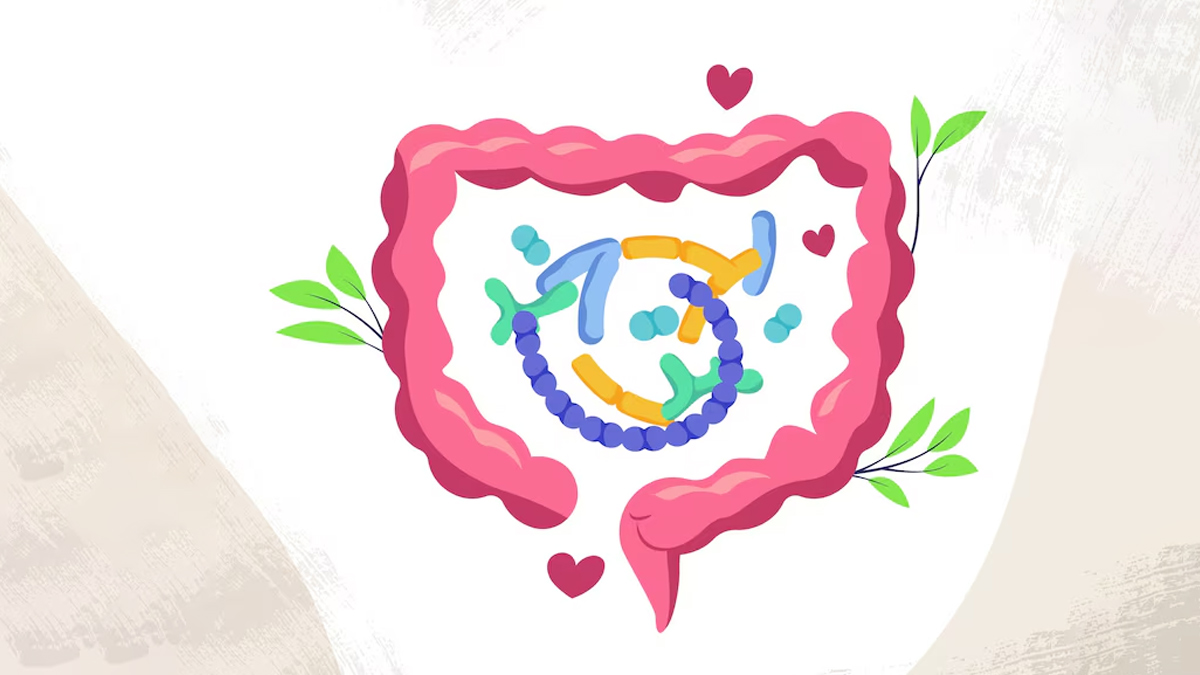
As a child, I would often rush through my meals, hastily swallowing food and running off to play, much to my mom's frustration. She would always remind me to chew each bite thoroughly, sometimes asking me to chew a morsel at least 32 times, as taught in school. After a few scoldings, I legit began counting to 32 with each bite, realising how important it was. But have you ever wondered what happens when you don’t chew your food properly? In today’s fast-paced world, we tend to overlook the simple act of chewing, but it’s a crucial step in digestion. Skipping this essential process can lead to a variety of digestive issues and impact your overall health.
To understand the importance of chewing food properly and the side effects of neglecting this essential step, OnlyMyHealth team interacted with Dr Roohi Pirzada, MBBS, Consultant Physician, Mumbai. She emphasises that proper chewing is not just a habit but a necessity for a healthy digestive process.
Why Is Chewing Important?

Chewing plays a pivotal role in breaking down food into smaller particles, increasing its surface area. This allows digestive enzymes to work more effectively in breaking down the food further, a process that begins in the mouth itself. According to Dr Pirzada, “Chewing each bite 15 to 20 times before swallowing ensures that food is adequately prepared for digestion.” Neglecting this step can disrupt the entire digestive process, leading to a cascade of health issues.
Digestive Issues from Improper Chewing
When food isn't chewed well, it reaches the stomach in larger chunks. These larger particles can be difficult for the stomach to break down, leading to incomplete digestion. As a result, undigested food particles can cause:

Gas and bloating: Gas is produced when undigested food ferments in the intestines, leading to bloating and discomfort.
Diarrhoea and nausea: The inability of the digestive system to handle large food particles can result in symptoms like diarrhoea or nausea.
Heartburn and acid reflux: Improperly chewed food can lead to increased stomach acid production, triggering heartburn or acid reflux.
Abdominal cramps: The strain on the stomach to digest larger food particles can cause painful cramping.
Also read: Heartburn And Indigestion Are Different: Here's How To Tell
Nutritional Consequences of Poor Chewing
Dr Pirzada also highlights that improper chewing can impact nutrient absorption. "Malnutrition can occur if food is not chewed properly, as the body may struggle to extract essential nutrients from incompletely digested food," she explains. Over time, this can lead to deficiencies in vitamins and minerals, even in individuals who consume a balanced diet.
Long-term Impact on Digestive Enzymes

The habit of not chewing food well can cause the stomach to adapt by producing fewer digestive enzymes over time. This decline can weaken the digestive system, making it harder for the body to process food efficiently, even if the person begins to eat mindfully later.
Tips to Develop Proper Chewing Habits
Incorporating proper chewing into your routine doesn't require major lifestyle changes, just a little mindfulness:
Take smaller bites: Smaller portions are easier to chew and digest.
Chew 15–20 times: Dr Pirzada advises making a conscious effort to chew each bite thoroughly before swallowing.
Eat slowly: Set aside dedicated time for meals and avoid distractions like screens.
Stay hydrated: Drinking water helps the digestive system function optimally, but avoid drinking large amounts while eating, as it can dilute digestive enzymes.
Also read: Feeling Bloated? Here’s What You Can Eat Without Stressing Your Stomach
Conclusion
Proper chewing is an easy yet powerful way to improve digestion and overall health. As Dr Roohi Pirzada aptly states, “Chewing is the first step in food digestion. It sets the tone for how well your body can process and absorb nutrients.” Ignoring this simple act can lead to bloating, heartburn, malnutrition, and a weaker digestive system. By taking the time to chew food thoroughly, you can ensure your body gets the nourishment it needs without the unnecessary strain on your digestive system. So, next time you sit down for a meal, remember: chew well to stay well!
How we keep this article up to date:
We work with experts and keep a close eye on the latest in health and wellness. Whenever there is a new research or helpful information, we update our articles with accurate and useful advice.
Current Version